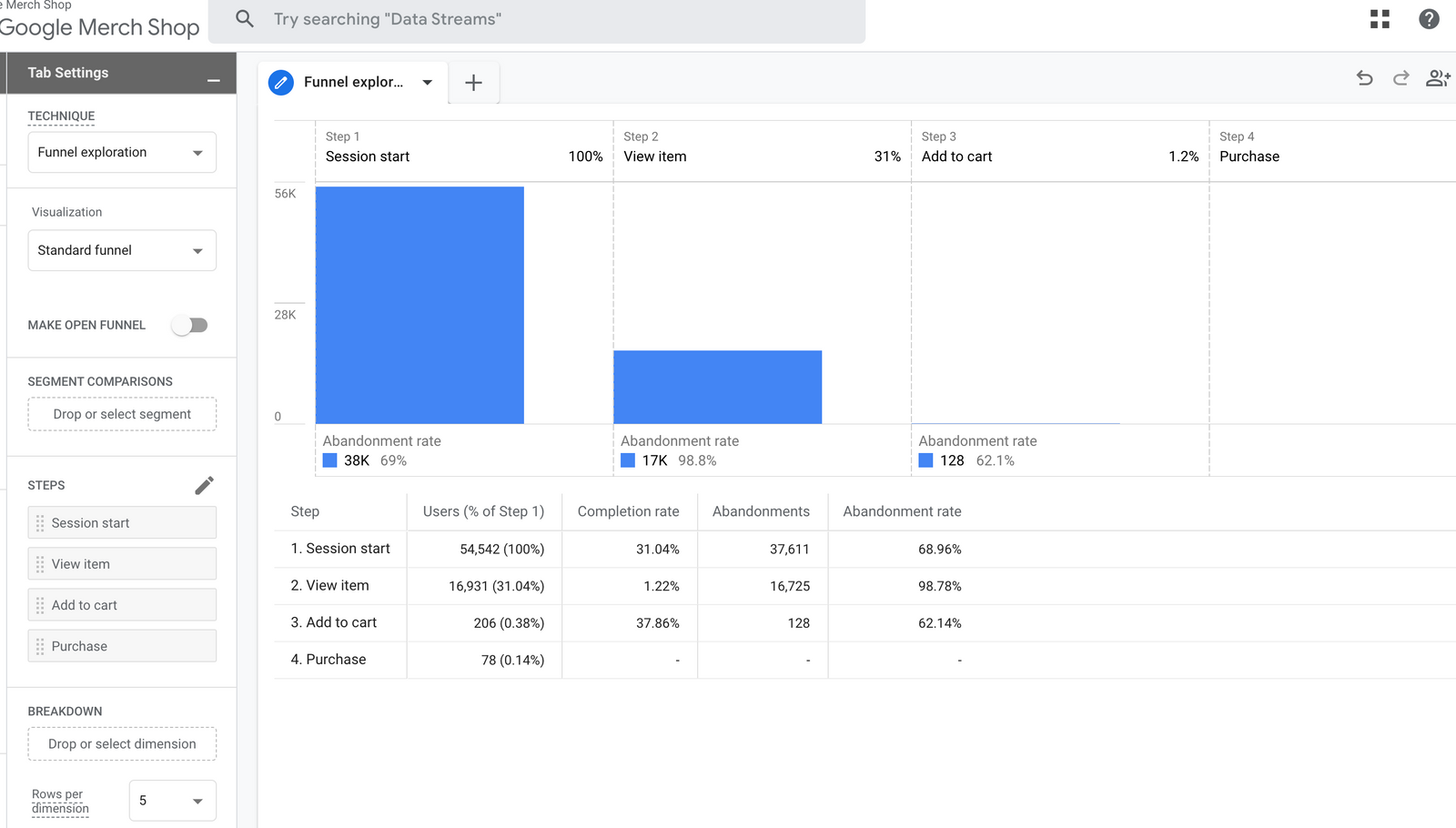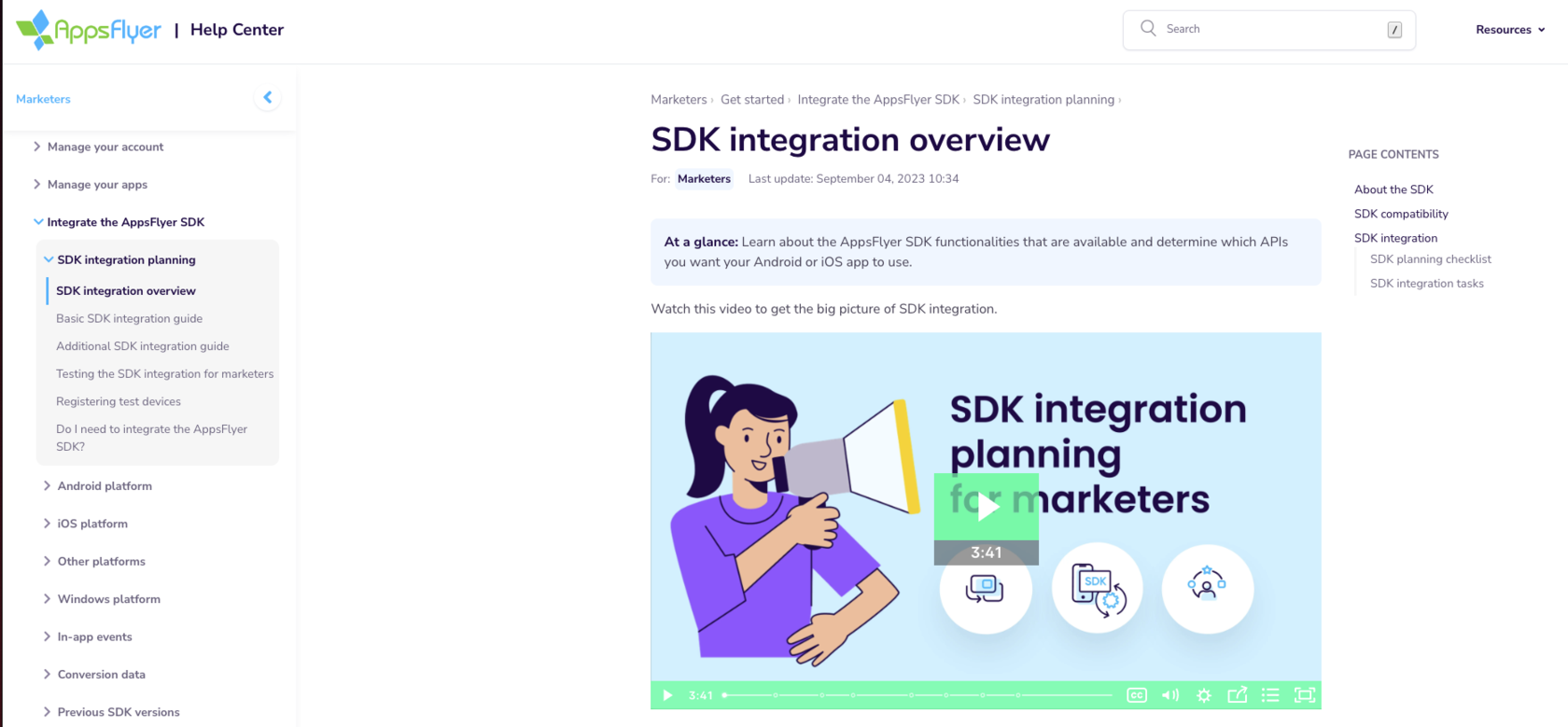Table of Contents
Success within the mobile app sphere is fundamentally tethered to developers' nuanced understanding of user behavior, alongside their agility in tailoring app features to meet user exigencies. In this vein, specialized analytics and tracking SDKs (Software Development Kits) emerge as quintessential by facilitating the meticulous collection, scrutiny, and monitoring of invaluable user behavior data within the app, coupled with app performance assessment across various lifecycle phases.
Amidst a saturated market of SDKs, the venture into user experience analytics has been demystified. The capability to pinpoint weak spots, discern prevailing consumer trends, and fine-tune mobile apps in harmony with these insights has transitioned from aspirational to attainable. As we traverse this narrative, we’ll unveil several acclaimed analytics and tracking SDKs, delving into the unique propositions each brandishes in amplifying user engagement and propelling conversion rates in mobile apps.
The seamless blend of analytics with intuitive SDKs not only unveils a treasure trove of user data but forms the bedrock for iterative app enhancements. It's a paradigm where data-driven insights dovetail with developmental finesse, setting the stage for elevated user satisfaction and, by extension, a burgeoning app user base.
Harnessing Insight: A Deep Dive into App Analytics and Tracking SDKs
App Analytics and Tracking SDKs are finely tuned to harvest, scrutinize, and monitor user behavior data within an app, while also appraising its efficiency. Let’s delve deeper into each facet:
- User Interaction Assessment:
Analytical SDKs are the linchpin in decoding user interactions within the app, casting a spotlight on features that are a hit with users versus those that are relegated to the sidelines.
- Data-Driven Optimization:
With a wealth of user interaction data at their fingertips, developers can finetune apps to escalate the user experience, thereby fostering an environment conducive to higher conversion rates.
- Source Identification:
racking SDKs adeptly pinpoint the origins of app installations, offering a clear vantage point to discern which marketing and advertising channels are pulling their weight.
- Holistic User Activity Monitoring:
Beyond just installations, these SDKs delve into the granularities of user activities within the app. By tracing sessions, events, and errors, they unfurl a holistic tableau of user interaction, thereby illuminating areas ripe for improvement.
The synergy between analytical and tracking SDKs unveils a robust framework for developers. It’s a realm where every click, swipe, and user action is transformed into actionable insights, empowering developers to elevate the app to a pinnacle of user satisfaction and operational efficiency. Through a continual loop of analysis, tracking, and optimization, the path towards a highly engaging and efficacious app is distinctly charted.
Navigating SDK Compliance for Analytics and Tracking: A Primer for App Store Acceptance
App Analytics and Tracking SDKs (Software Development Kits) are instrumental in dissecting user interactions and gauging app performance. Adhering to the guidelines delineated by the Google Play Market and Apple Store is paramount to secure app acceptance. Here’s a succinct breakdown:
Google Play Market:
- SDK Version Recency:
РIt's imperative to employ the latest versions of SDKs to ensure an apex of security and compatibility, thereby aligning with the evolving standards of the Google Play Market.
- Google Play Policy Adherence:
Ensure your selected SDKs are in strict adherence to Google Play policies to circumvent any violations that could jeopardize app store availability.
- Security Benchmarking:
Fulfill Google’s security benchmarks to fortify user data protection and bolster app reliability, thereby fostering a secure app ecosystem.
Apple Store:
- Adherence to Apple Recommendations:
Heed Apple's recommendations and best practices when tracking and analytics SDKs, thereby aligning with the stringent quality and operational standards set by the Apple Store.
- Security and Privacy
Ensure your chosen SDKs meet the high-bar security and privacy standards set by Apple for user data protection, underpinning a trustworthy user experience.
- Compatibility Assurance:
SDKs should harmonize with the latest iOS versions and other Apple technologies, ensuring a seamless operation and user interface.
Specifically, within the realm of tracking and analytics, it's prudent to prioritize SDKs that have a minimal impact on performance, boast flexible configurations, and enable accurate, timely data collection. These attributes are crucial in enhancing app integrity and enriching the user experience, thus setting a solid groundwork for app store acceptance and user accolades.
Top Analytics and Tracking SDK at 2023
Google Analytics SDK
The Google Analytics SDK is a powerhouse for data collection on app usage across both iOS and Android platforms, dubbed as Google Analytics for Mobile Apps. It's a conduit for tracking traffic and user interactions within mobile applications. Here’s a closer look at its facets:
- Event Tracking:
- Measure specific user actions like button clicks, form submissions, or video plays to understand user behavior better.
- Screen Tracking:
- Evaluate which screens or views captivate user attention the most, aiding in optimizing the user interface.
- User Properties:
- Classify app users based on different attributes such as demographics or preferences, facilitating targeted engagement..
- E-commerce Tracking:
- When integrated, delve into the analysis of e-commerce transactions happening within the app, aiding in performance evaluation.
- Real-time Reports:
- Keep a finger on the pulse of user activity and app performance with real-time monitoring, allowing for timely adjustments.
- Custom Metrics:
- Craft and track additional data points tailored to your app, expanding the horizon of analytical insights.
By integrating code, the SDK meticulously captures user interactions such as app launches, screen views, button clicks, and in-app purchases. This data is then dispatched to Google Analytics servers for thorough processing and analysis, laying down a robust foundation for informed decision-making and app enhancement.

UserX SDK
Embark on a journey through a rich suite of tools with the UserX SDK, crafted for delving into user behavior and identifying avenues for app refinement. Here’s a sneak peek into the core features and utilities of UserX SDK:
- User Behavior Analytics:
- Uncover the intricacies of user interactions via session recordings pinpointing barriers to desired actions and understanding user pathways.
- Heatmaps:
- Identify the hotspots of user attention versus the overlooked UI (User Interface) elements, providing a visual representation of interaction density.
- Conversion Funnels:
- Track user progression through key actions, like purchases, identifying where drop-offs occur to refine the user journey and boost conversions.
- Data Anonymization:
- With built-in mechanisms, UserX ensures the safety of user data from the device to the server, underpinning a secure analytics environment.
- Growth-Point Analytics:
- Spot potential growth vectors, aimed at enhancing the user experience (UX) and app efficacy, paving the way for sustained app growth.
- Hassle-Free Integration:
- With just a few lines of code, integration is made simple, enabling even Junior developers to seamlessly embed UserX into the app framework.
UserX unveils a treasure chest of UX analysis tools, assisting developers in fine-tuning mobile apps, elevating user satisfaction, and ultimately, bolstering conversion rates. Notably, UserX carves out a niche for itself as a qualitative analytics service, providing a nuanced understanding of user engagement and app performance.
AppsFlyer SDK
Venture into a wide spectrum of platform compatibilities with AppsFlyer SDK, streamlining the fusion of AppsFlyer features into your app and marketing infrastructure. Immerse in the realm of conversion data acquisition, uninstall metrics, and engage various listeners and delegates for smooth event and data management within your app.
- Installation and Event Logging:
- Keep tabs on app installations, user sessions, and key in-app events like purchases or level advancements, laying a solid groundwork for user engagement analysis..
- ROI and User Quality Assessment:
- Delve into the evaluation of Return on Investment (ROI) and audience quality predicated on the amassed data, aiding in marketing strategy refinement.
- Platform Compatibility:
- Enjoys broad compatibility, supporting Android from V4.0, iOS from version 9+, and non-mobile Android-based platforms like Smart TV (including Amazon Fire TV), broadening the horizon for app analytics and marketing integration.
- Device Identifier Collection:
- Harness device identifiers like IMEI or Android ID, facilitating a deeper understanding of user interactions across various devices.
- App and Marketing Stack Integration:
- Through the lens of AppsFlyer SDK, uncover a multifaceted toolkit that not only accentuates app analytics but also seamlessly intertwines with your marketing stack, paving the way for informed marketing decisions and enhanced user engagement.

Conclusion
For a well-rounded comprehension, blending tools of both quantitative and qualitative analytics is crucial. A prudent step is to meld SDK UserX with stalwarts like Google Analytics or AppsFlyer. The integration of UserX with these SDKs paves the way for a deep-dive into user behavior analysis, uniting session recordings with hard analytical data. This collaboration is instrumental in spotlighting areas ripe for enhancement within the app and honing the user experience. It orchestrates a harmony between the visual data gleaned from UserX and the analytical metrics derived from other platforms, crafting a rich tapestry of insights that serve as a beacon for app refinement.
FAQ
Which analytics and tracking SDKs are most popular?
These are tools designed for gathering, analyzing data, and monitoring user interactions within the app.
Какие SDK для аналитики и трекинга наиболее популярны?
Prominent SDKs include Google Analytics, AppsFlyer and UserX.
What is UserX SDK?
UserX SDK is engineered to record user actions in your mobile app.
How can UserX be combined with Google Analytics, AppsFlyer?
UserX can be amalgamated with these SDKs for an in-depth user behavior analysis, merging session recordings with analytical insights.



